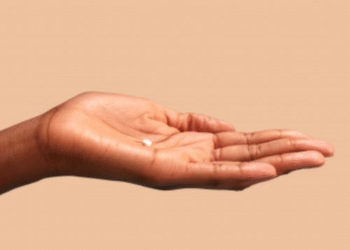Anxiety and depression are common mental health conditions that can have a significant impact on a person’s daily life. Coping with these conditions can be challenging, but there are many strategies that can be effective in managing symptoms and improving overall well-being.
In this article, we will explore 10 coping mechanisms for anxiety and depression that have been shown to be helpful in reducing symptoms and promoting emotional resilience. From mindfulness practices to physical activity and therapy, we will examine a range of strategies that can be used individually or in combination to support mental health and improve quality of life.
Whether you are experiencing mild or severe symptoms, these coping mechanisms can help you navigate the challenges of anxiety and depression and move towards a more balanced and fulfilling life.
1. Exercise
Exercise has been found to be an effective coping mechanism for individuals experiencing a range of mental health conditions, including anxiety, depression, and stress. Engaging in physical activity has been shown to reduce the symptoms of these conditions and improve overall mental health and well-being. One of the reasons why exercise is such an effective coping mechanism is because it releases endorphins, which are natural chemicals that reduce pain and increase feelings of pleasure. These endorphins create a natural high, which can help to reduce stress and anxiety and promote feelings of happiness and well-being.
Another benefit of exercise is that it provides a sense of control. When individuals are experiencing mental health challenges, they may feel like they have lost control over their thoughts and emotions. However, exercise provides a structured activity that individuals can control and participate in, which can help to boost self-esteem and confidence.
It can also help improve sleep, which is crucial for overall mental health and well-being. Individuals who are experiencing mental health challenges often struggle with sleep, which can further exacerbate their symptoms. However, exercise can help to regulate sleep patterns and promote deeper, more restful sleep.
2. Mindfulness
Mindfulness is a concept that has been around for thousands of years, but it has gained renewed attention in recent years as a technique for coping with stress, anxiety, and other emotional challenges. At its core, mindfulness is about being fully present in the moment, without judgment or distraction. It is about paying attention to your thoughts, feelings, and physical sensations without getting caught up in them.
There are many ways to practice mindfulness, but some of the most common techniques include meditation, deep breathing, and body scan exercises. These practices can help to quiet the mind and bring a sense of calm and focus to the present moment.
One of the key benefits of mindfulness as a coping mechanism is that it can help reduce stress and anxiety. By focusing on the present moment and letting go of worries about the past or future, you can calm your mind and lower your stress levels. This can be particularly helpful in situations where you are feeling overwhelmed or anxious, such as before a big exam or a job interview.
3. Social Support
Social support is a powerful tool that can be used to help individuals cope with a wide range of stressors, including illness, grief, and financial difficulties. Social support refers to the assistance, guidance, and comfort provided by friends, family, and other individuals in times of need. There are several ways in which social support can be used as a coping mechanism. Firstly, social support can provide emotional support, which involves offering encouragement, empathy, and understanding to an individual.
This type of support can be especially helpful during times of stress or trauma, as it allows individuals to feel heard and validated. Emotional support can also help individuals process their emotions and feel less alone in their struggles. Spending time with friends and family or joining a support group can provide a sense of connection and reduce feelings of isolation
4. Therapy
Therapy can be used as a coping mechanism by providing a safe space for individuals to express their thoughts and feelings without judgment or fear of consequences. This is particularly important for people who may not have a supportive network of family or friends to turn to during times of stress or crisis.
In therapy, individuals can explore their emotions and experiences with a trained professional who can help them develop new coping strategies and ways of thinking about their situation. Seeing a mental health professional, such as a therapist or counsellor, can help identify triggers and develop coping strategies to manage anxiety and depression.
5. Time Management
Time management is a valuable skill that can help individuals manage stress and anxiety in their daily lives. While many people view time management as simply a way to increase productivity and efficiency, it can also be used as a powerful coping mechanism for dealing with life’s challenges. When we feel overwhelmed or stressed, it is common to feel as if we don’t have enough time to get everything done. This can lead to feelings of anxiety and even depression.
However, by developing effective time management strategies, individuals can regain a sense of control over their lives and reduce their stress levels. Managing time and setting achievable goals can help reduce stress and improve mood.
6. Healthy Eating
Healthy eating habits can have a positive impact on mental health. Research has shown that a diet high in fruits, vegetables, and whole grains is associated with a lower risk of depression and anxiety. In addition, healthy eating can improve mood, increase energy levels, and promote better sleep, all of which can help manage symptoms of depression and anxiety.
Healthy eating habits can also help manage stress, a common trigger for depression and anxiety. Eating a diet rich in nutrients can help regulate the stress hormone cortisol and reduce inflammation in the body, which can improve overall health and well-being. A balanced diet that includes whole foods and limits processed foods and sugar can help improve overall physical and mental health.
7. Creativity
Creativity can be a powerful tool for coping with depression and anxiety. Engaging in creative activities can provide a sense of self-expression, distraction, accomplishment, mindfulness, and social connection. Whether through writing, painting, dancing, or any other creative outlet, incorporating creativity into a daily routine can have a positive impact on mental health and overall well-being.
8. Sleep Hygiene
One of the most important components of good sleep hygiene is maintaining a regular sleep schedule. This means going to bed and waking up at the same time each day, even on weekends and holidays. This helps to regulate your body’s internal clock, making it easier to fall asleep and wake up naturally. A regular sleep schedule can also help to improve the quality of your sleep, as your body becomes accustomed to the routine. This can help to reduce the likelihood of sleep disturbances and disruptions, which can contribute to feelings of anxiety and depression.
9. Positive Self-Talk
Positive self-talk can have a significant impact on mental health and well-being. It can help to reduce anxiety and depression symptoms, increase self-esteem and confidence, and improve overall mood and outlook on life.
Positive self-talk can also help individuals develop resilience, which can be critical in coping with challenging situations. Challenging negative thoughts and replacing them with positive affirmations can help improve self-esteem and reduce anxiety and depression symptoms.
10. Medication
In some cases, medication may be necessary to manage anxiety and depression symptoms. Consulting with a mental health professional can help determine if medication is appropriate. It is important to remember that coping mechanisms are not a cure for anxiety and depression, but rather a tool for managing symptoms and improving overall mental health. It is also important to seek professional help if symptoms persist or become overwhelming.

Coping mechanisms are important tools for individuals struggling with depression and anxiety. There are many different techniques that can be used, and it’s important to find the ones that work best for each individual. It’s important to remember that there is no one-size-fits-all solution for depression and anxiety, and what works for one person may not work for another.
It’s also important to seek professional help if symptoms of depression and anxiety persist or become overwhelming. Overall, coping mechanisms are an essential part of managing depression and anxiety, and incorporating them into daily life can help individuals improve their overall mental health and well-being. By using these techniques, individuals can learn to manage their symptoms and work towards a healthier and happier life.







